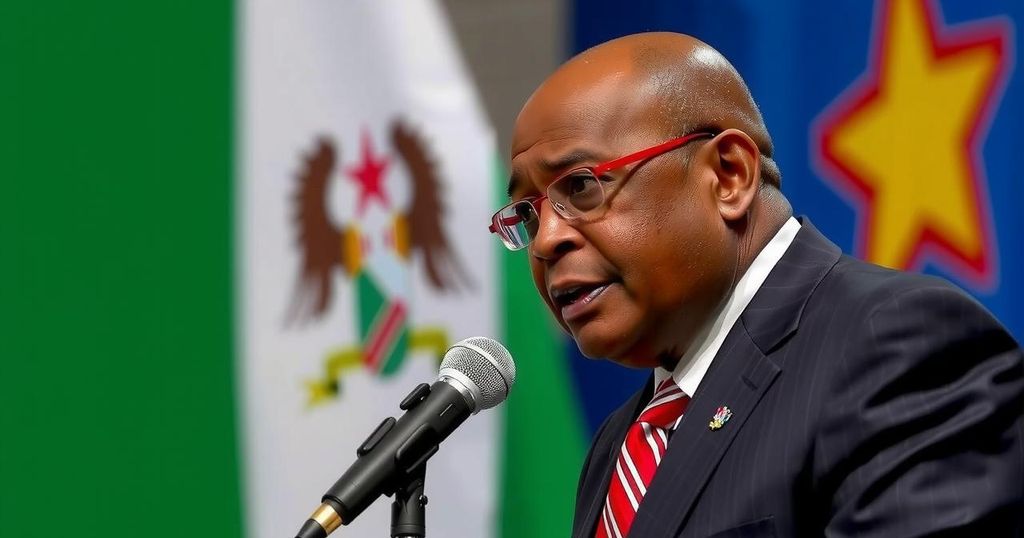The President of Guinea Bissau, Umaro Sissoco Embalo, has postponed legislative elections originally set for November 24, extending the ongoing political uncertainty in the nation. The decision followed concerns over logistical issues and funding, exacerbated by a tense political climate. No new date has been established for the elections, adding to the challenges faced by this impoverished country known for its unstable political history.
The President of Guinea Bissau, Umaro Sissoco Embalo, has officially delayed legislative elections that were scheduled for November 24, thus extending the political uncertainty in the West African nation. Following his announcement on Monday, the postponement comes after the parliament was dissolved last December amidst violent clashes, which Embalo characterized as an attempted coup. Despite previous expectations for the elections to proceed, logistical issues and financial constraints prompted officials to question the feasibility of the vote, leading to the formal cancellation of the scheduled election. This event adds to the ongoing instability within the nation, particularly given the presence of a competing political coalition that holds a majority and complicates the situation further. Compounding this political tension is the fact that there has been no new date established for the elections, which provides no clear timeline for resolutions. Coupled with the political discord following the elections held in June 2023, a lack of funds has hindered preparations, given that Guinea Bissau remains one of the poorest countries globally, enduring political strife and corruption since its independence from Portugal. Despite efforts over the past decade to establish constitutional governance, challenges remain in stabilizing the political landscape of the country.
Guinea Bissau, a small Portuguese-speaking nation in West Africa, has historically faced political instability, marked by a series of coups and governance challenges since its independence. The country’s political system has struggled to establish a consistent democratic order, with waves of corruption and economic hardship contributing to a fragile state. In December 2019, Umaro Sissoco Embalo was elected president; however, his administration has been characterized by tension and conflict with the legislature, particularly with the African Party for the Independence of Guinea and Cape Verde (PAIGC), which has held a parliamentary majority. As the upcoming elections have now been indefinitely postponed, the political uncertainty continues to loom over Guinea Bissau, raising concerns about future governance and the rule of law.
In summary, the indefinite postponement of legislative elections in Guinea Bissau by President Umaro Sissoco Embalo marks a significant setback for the country’s political landscape. The challenges of logistical uncertainties and financial difficulties reflect deeper issues within the governmental framework. As the nation contemplates its next steps amidst ongoing political tension and a lack of clear direction, the prospect of achieving stable governance remains a distant goal for Guinea Bissau.
Original Source: punchng.com






